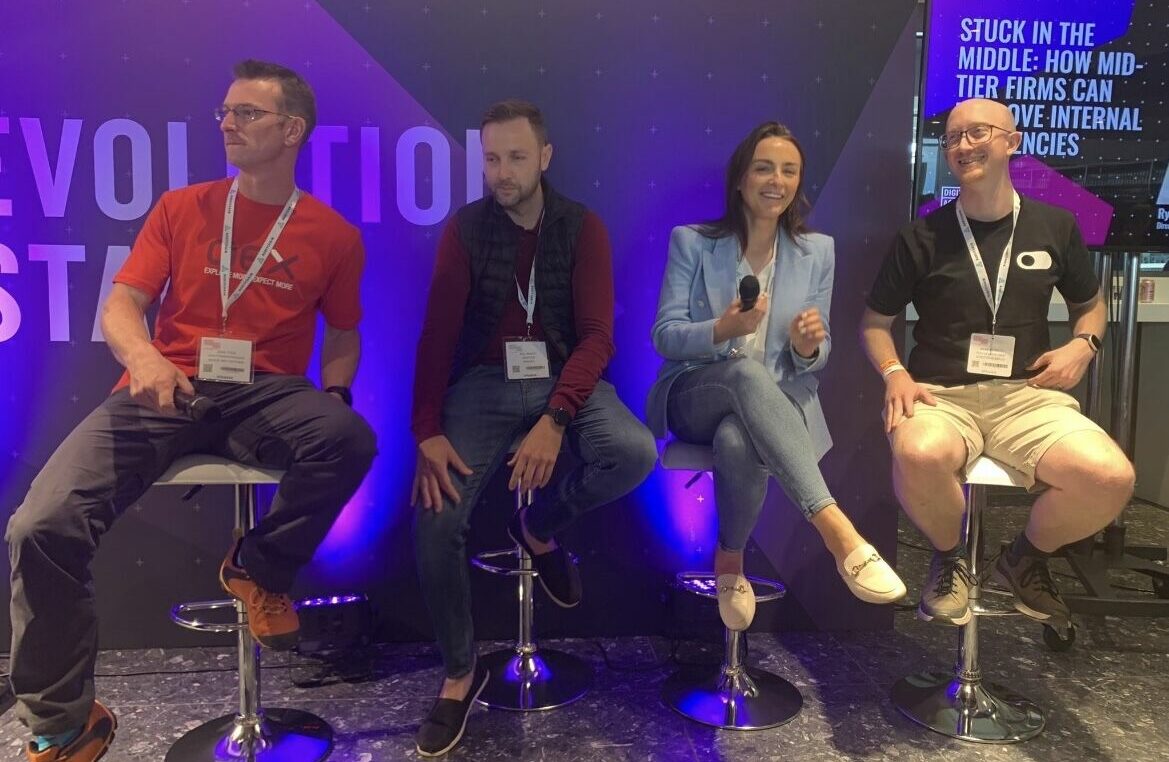Over the past couple of months, it’s been great to get out and about and back to attending industry events after two years of cancellations and postponements. I’d like to share my experiences and views on the value of in-person events.
I always enjoy getting away from the office to be with like-minded, forward-thinking accountants working towards the same goal. I find it inspires me to come up with great new ideas and ways of improving our processes and the way we serve our clients.
In May, I attended Accountex at London’s ExCel Centre, where I was fortunate enough to be asked to take part in a seminar on how to navigate pitfalls when advising clients on software. I found this to be a really useful session and enjoyed sharing valuable insights with industry colleagues.
Key themes
What constitutes good software advice and why is it needed?
Times are changing as accountants are increasingly being trusted as clients’ core advisers. Lockdowns forced us all to rely more on technology. This, coupled with wider challenges such as the great resignation, means that software and app advisory services have a much bigger role to play in helping businesses to streamline their finance function and create efficiencies.
As a result, business owners will spend less time managing their finances and more time working on their business. As digital accountants, we need to be able to advise clients around their pain points, and tech is a great facilitator. Now that we have app ecosystems, we’re able to offer a much more tailored service.
What should you bear in mind before offering software advice?
- There are several stages involved in software advisory; enquiry, scoping, research and recommendation, implementation, training and support and ongoing enhancements.
- It’s important to define your services. Which sectors are you going to support? Be aware that different industries such as retail, professional services and trades will have very different requirements.
- Your people will need the necessary skillset to advise and deliver change, so it’s vital to have a project manager, change manager and technical implementor.
- You need to manage expectations and minimise risk – client buy-in and collaboration is essential, as research into different financial systems and operational software comes with a fee attached.
- Change management – often a project in itself, it’s important to ensure that all stakeholders have been consulted and are bought in. Process mapping is a key part of this.
Learning points
In June, I also attended the Digital Accountancy Show at the Tottenham Hotspur Stadium, where I was part of a panel discussing how mid-tier firms can improve internal efficiencies. This provided further great insight into the thoughts of my contemporaries working in the industry.
My main takeaway from the two events was the importance of sharing ideas – collaborating with my counterparts meant that we could look collectively at new tech and emerging themes, such as data analytics, staff retention, crypto and Making Tax Digital, and discuss their impact. I was able to gather some great ideas for improving our onboarding processes to ensure a smoother client journey.
With Digital Finance being such a fast-moving field, it’s a huge advantage to be able to attend in-person events with like-minded individuals and I’m looking forward to being involved in more industry shows in the future.
Find out more at Accounts – BHP, Chartered Accountants or get in touch with our Digital Finance team today by completing our simple enquiry form.
This material is for informational purposes only and should not be relied upon as professional advice.



